A list of the available Histology Equipment the BRCF can provide for Boise State students and faculty.
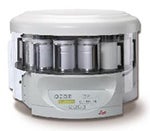
Leica TP1020 Benchtop autoembedder
The Leica TP1020 Benchtop autoembedder is a benchtop tissue processor designed to provide gentle dehydration, clearing and infiltration of various tissues with paraffin wax. Along with that, the TP1020 is completely programmable, allowing tissue-specific programs to be developed. Furthermore, a programmable, optional vacuum setting is available to improve infiltration.
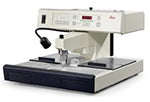
Leica EG1150H
The Leica EG1150H is a heated paraffin dispensing module with a large heated work surface and storage areas for both cassettes and molds. In addition to that, the embedding module aids in obtaining proper orientation of tissues and final embedding in blocks of paraffin for sectioning.
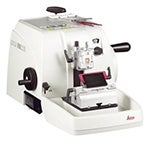
Leica RM2235 Rotary Microtome
The Leica RM2235 Rotary Microtome is designed for precision manual sectioning of paraffin embedded tissues. The Histology equipment of BRC has a knife holder for low profile blades, and a separate knife holder for high profile blades, used for sectioning harder materials. In addition, this microtome has a sectioning range of 1-60 mm.
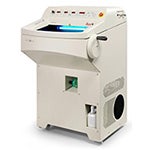
Leica CM1950 cryostat
The Leica CM1950 cryostat is available for safe, accurate and fast high quality sectioning. Also, the cryostat can section frozen tissues up to 100 microns in thickness.

Leica Vibratome VT1000
The Leica Vibratome VT1000 is allows sectioning of fresh or fixed tissue with or without embedding in support media such as agarose. Particularly, speed, frequency, amplitude, and clearance angle are all easily adjustable, and sections can be cut up to 999 microns.
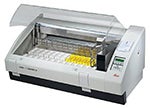
Leica Autostainer XL
The Leica Autostainer XL provides a gentle method of staining multiple slides. Along with that, this system is currently set up to quickly and easily stain tissues with hematoxylin and eosin and/or to simply dewax slides cut from paraffin blocks. Moreover, the processor has the capability to automate multiple staining protocols, with up to 15 programs of 25 steps each.
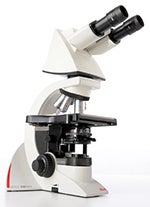
Leica DM 1000
The Leica DM 1000 LED transmitted light microscope features long-life LED illumination that provides near daylight effects. Bright illumination with constant color temperature. As well as that, this is an extremely versatile microscope system. Clearly is equipped for dark field, phase contrast, polarization contrast, and fluorescence. Also, the microscope is fitted with a third generation SPOT TM RT3 Slider camera, which allows the user to capture both true color imaging and high sensitivity monochrome images.
Contact
Please contact Dr. Keller-Peck at 208-426-2254 or by email at ckpeck@boisestate.edu. Importantly, this will provide more information regarding the Histology equipment.